Alister Hamilton
L-Sort: An Efficient Hardware for Real-time Multi-channel Spike Sorting with Localization
Jun 26, 2024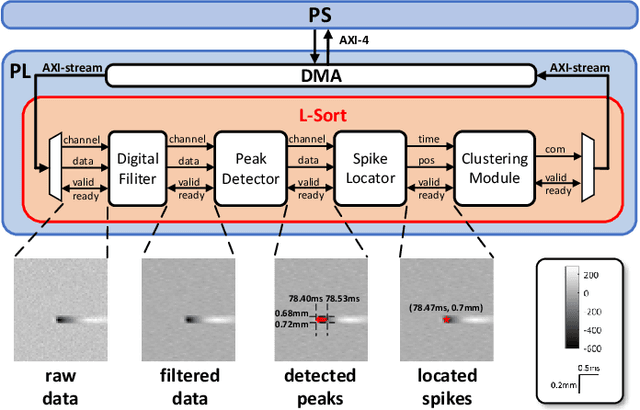
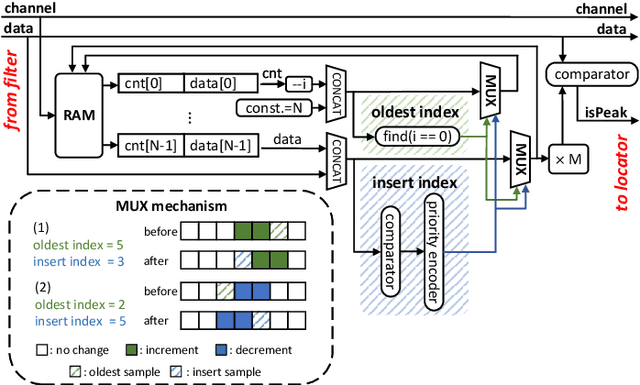
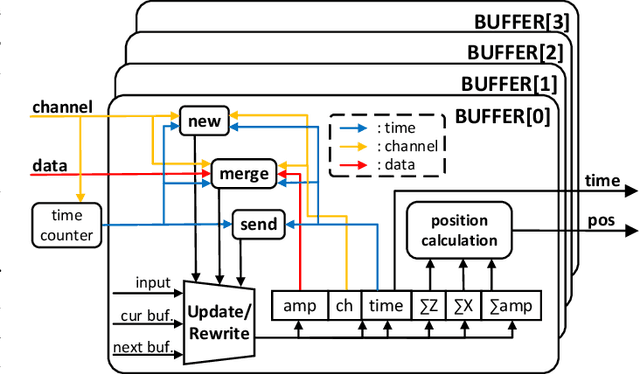
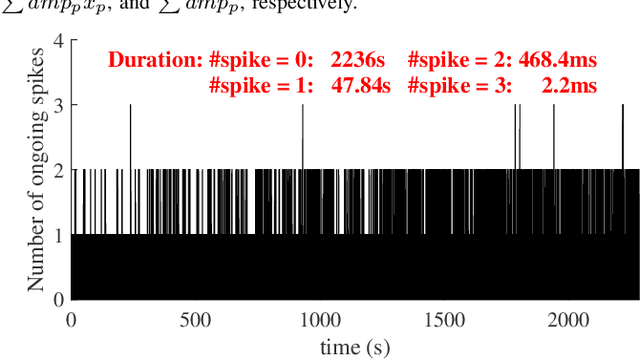
Abstract:Spike sorting is essential for extracting neuronal information from neural signals and understanding brain function. With the advent of high-density microelectrode arrays (HDMEAs), the challenges and opportunities in multi-channel spike sorting have intensified. Real-time spike sorting is particularly crucial for closed-loop brain computer interface (BCI) applications, demanding efficient hardware implementations. This paper introduces L-Sort, an hardware design for real-time multi-channel spike sorting. Leveraging spike localization techniques, L-Sort achieves efficient spike detection and clustering without the need to store raw signals during detection. By incorporating median thresholding and geometric features, L-Sort demonstrates promising results in terms of accuracy and hardware efficiency. We assessed the detection and clustering accuracy of our design with publicly available datasets recorded using high-density neural probes (Neuropixel). We implemented our design on an FPGA and compared the results with state of the art. Results show that our designs consume less hardware resource comparing with other FPGA-based spike sorting hardware.
An FPGA Implementation of Convolutional Spiking Neural Networks for Radioisotope Identification
Feb 24, 2021
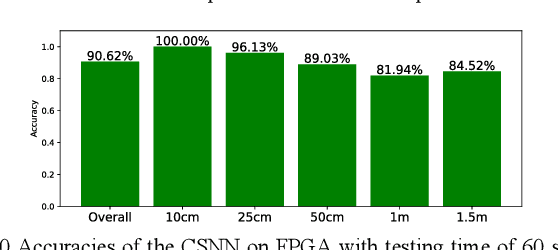

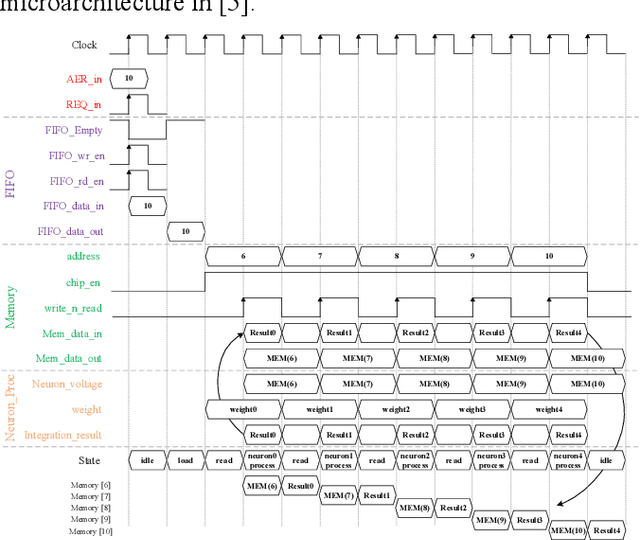
Abstract:This paper details the FPGA implementation methodology for Convolutional Spiking Neural Networks (CSNN) and applies this methodology to low-power radioisotope identification using high-resolution data. Power consumption of 75 mW has been achieved on an FPGA implementation of a CSNN, with an inference accuracy of 90.62% on a synthetic dataset. The chip validation method is presented. Prototyping was accelerated by evaluating SNN parameters using SpiNNaker neuromorphic platform.
 Add to Chrome
Add to Chrome Add to Firefox
Add to Firefox Add to Edge
Add to Edge